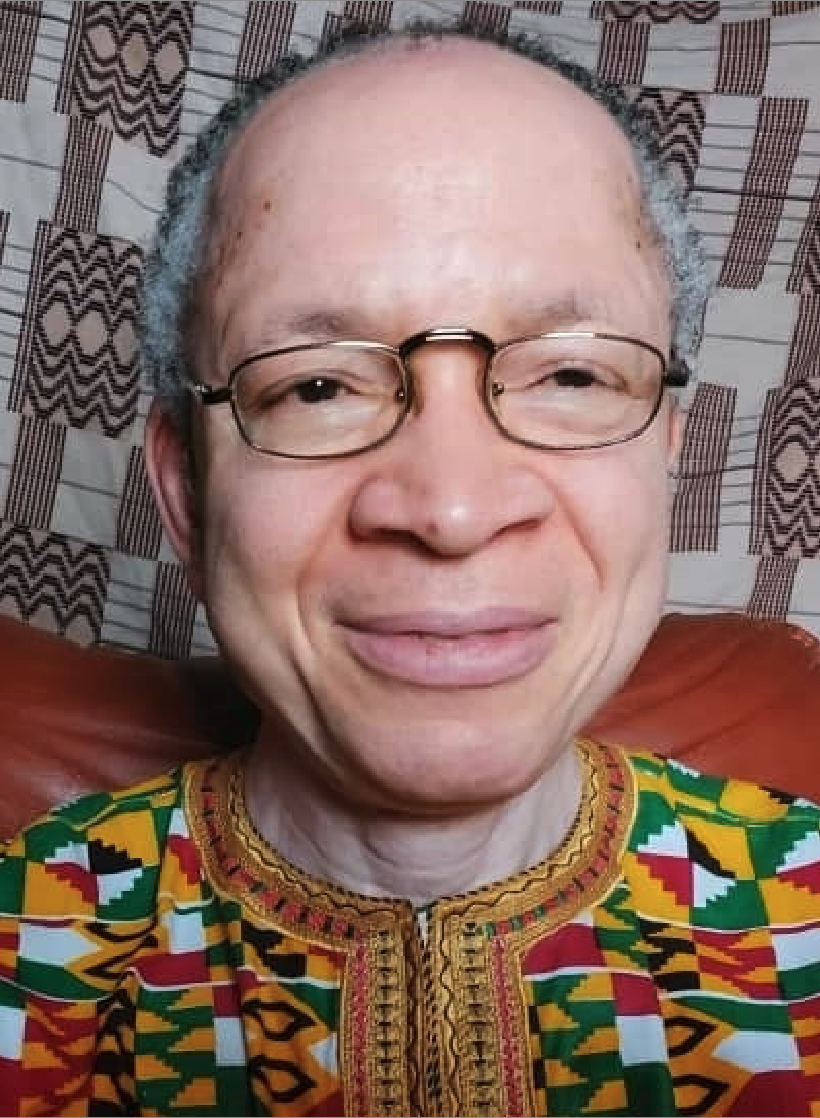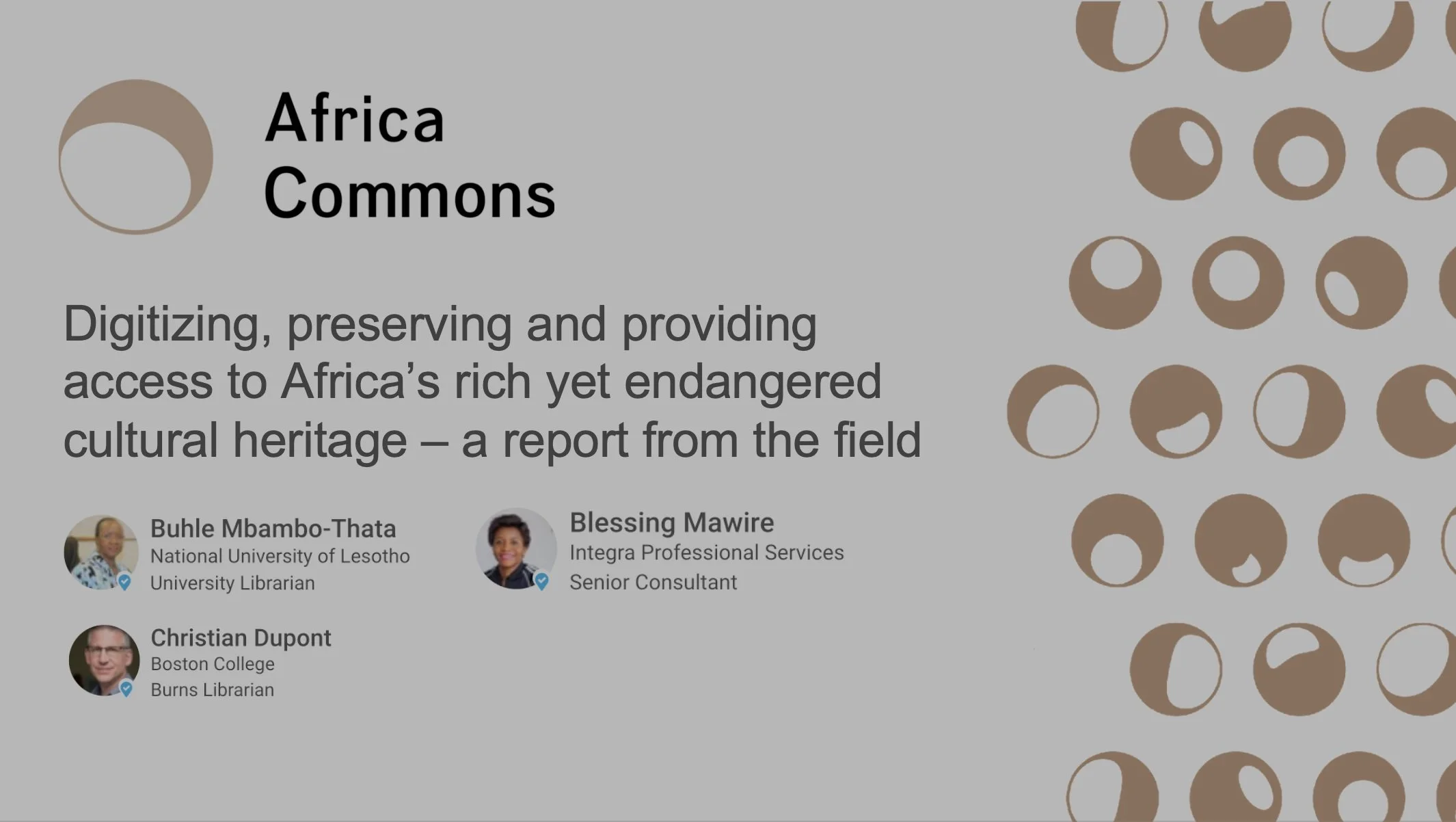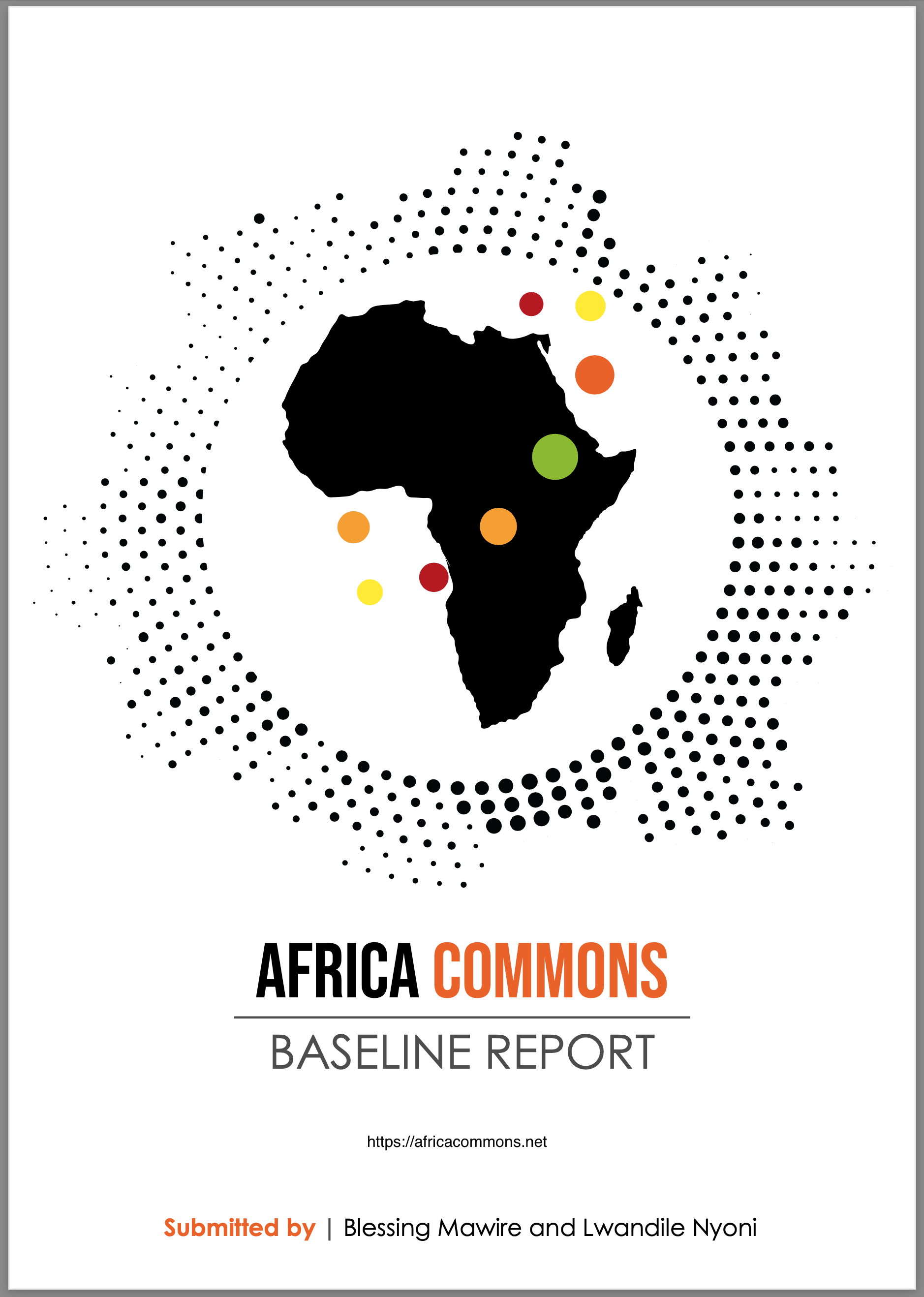
A project to digitize, disseminate, and discover African cultural materials. Our aim is to enable Africa easily to control and access its archival riches—those within Africa and items residing internationally. We help preserve African content and enable African scholars easily to find and access expressions of their heritage in Western collections.
Four collections are currently available:
African History and Culture —An index, search engine and preservation tool for more than 500,000 openly available books, magazines, and other primary sources.
Black South African Magazines—The first and only digital collection of magazines created for Black audiences in Africa from 1937 to 1973.
Southern African Films and Documentaries—Hundreds of African documentaries, oral histories, and other films for study and learning.
East African Magazines, Newspapers, and Films: The Hilary Ng’weno Archive— An exclusive collection of full-run magazines, newspapers, and films from the legendary Kenyan journalist, Hilary Ng’weno.
Few Western directories document African archives
The challenge
African archives and their collections are hard to find and hard to access. Finding aids are scarce, and few items are digitized. That puts the materials at risk.
Outside Africa, such materials are scattered across thousands of collections with different indexing and user interfaces. They’re hard to find and difficult to search; they can’t easily be deployed for learning and research.
Project goals
Enable Africa easily to control, digitize, and disseminate its archival riches—those within Africa and items residing internationally
Save and preserve at-risk content
Digital repatriation—enable African scholars easily to find and access expressions of their heritage in Western collections
Cultivate a deeper understanding of Africa and its people
Dr. Buhle Mbambo-Thata, Board Chair, discusses Africa Commons.
Advisors
Dr. Buhle Mbambo-Thata
Advisory Board Chair
Dr. Buhle Mbambo-Thata is one of the most distinguished librarians in Africa. She’s currently University Librarian at the University of Lesotho, having previously served as Executive Director, Library Services, University of South Africa (UNISA), and as University Librarian at the University of Zimbabwe where, against a backdrop of a collapsing economy, she managed to build a state-of-the-art digital library.
Dr. Mbambo-Thata currently chairs the board of the Council for Library and Information Resources (CLIR). She’s also served for many years with a wide range of organizations, including the African Library and Information Association and Institutions (AfLIA), the International Federation of Library Associations and Institutions (IFLA), the Board of Directors of the National Library of South Africa, the Library Network of Association of Commonwealth Libraries, E-Knowledge for Women in Southern Africa (EKOWISA), and others.
Dr. Stephen Akintunde
Advisory Board Member
Dr. Stephen Akintunde is Professor of Information and Library Studies at the University of Jos, Plateau State, Nigeria. His immediate past positions were as University Librarian, University of Jos, and Chairman of Nigerian University Libraries Consortium. Dr. Akintunde is a member of the Steering Committee, Supporting Research Community of the Association of Commonwealth Universities, and is on the Editorial Advisory and Review Boards for Information and Learning Science; and Global Knowledge, Memory and Communication. He is a recipient of Outstanding Reviewer in the Emerald Literati Network Awards for Excellence and held leadership positions in the Nigerian Library Association and is a member of American Library Association, the Chartered Institute of Library and Information Professionals, and International Sociological Association.
Dr. Elisha Rufaro Chiware,
Advisory Board Member
Dr. Elisha Chiware has served as Library Director at Cape Peninsula University of Technology in South Africa for the last twelve years. Prior to that, he served as Lecturer at the University of Namibia, University Librarian at the Chinhoyi University of Technology, Senior Systems Librarian at Africa University, as well as librarian roles at the Universities of Zimbabwe and Botswana. He has also served on the boards of the International Association of University Libraries (IATUL) as Secretary, the South African Library and Information Consortium (SANLIC), the Committee of Higher Education Libraries South Africa (CHELSA), and has chaired the Research Data Management and Open Science research group for the Western Cape Tier II Data Intensive project in Astronomy and Bioinformatics.
Dr. Chiware completed a master’s degree in Library Science (Indiana University, Bloomington, USA) and a PhD in Information Science (University of Pretoria).
Dr. Perpetua S. Dadzie
Advisory Board Member
Dr. Perpetua S. Dadzie is an Associate Professor of Information Science at the University of Ghana. She obtained her PhD in Information Science from the University of South Africa. She has also been teaching at the University of Ghana since 2006, and her areas of expertise include Information Sources, Marketing of Information Services, and Public Relations. She serves on several boards and committees at the University of Ghana including the Academic Board, Graduate Studies Board, and Joint Examination Board. She has participated extensively in many conferences, both local and international, and has also published widely in reputable journals. Her areas of research interest include digital libraries, information literacy, information ethics and libraries, and the UN 2030 Agenda.
Dr. Dadzie was the University Librarian of the University of Ghana Library System from 2016 to 2021. She also served two terms as President of the Ghana Library Association from 2012 to 2016. She was also a member of the IFLA Africa section Committee from 2015 to 2017.
Dr. Tandi Lwoga,
Advisory Board Member
Dr. Lwoga is a Professor and the Deputy Rector (Academic, Research and Consultancy) at the College of Business Education in Tanzania. Previously, she was the Associate Professor and the Library Director at the Muhimbili University of Health and Allied Sciences in Tanzania. She’s published more than 100 publications in leading international journals, proceedings, and books and been active in professional organizations including Sub-Saharan Africa User Representative for the Research4Life Executive Council and Chairperson for the Association of Information Science and Technology - Africa Chapter. She has consulted for academic institutions, national governments, and international organizations such as the United Nations Technology Bank for Least Developed Countries, University of Minnesota, ITOCA, EAHRC, University of Eastern Finland, Sida, Spider, DFID, and University of Oslo.
Blessing Mawire,
Senior Researcher
Ms. Mawire is a Senior Consultant and Director at Integra Professional Services. She has over thirteen years’ experience working in Sub-Saharan Africa in the areas of knowledge management, digital access, and digital inclusion in low-resourced communities. She’s led the implementation of multicountry projects across Sub-Saharan Africa and has worked with diverse global partners from community-based organizations, research institutions, and governments, including the Bill and Melinda Gates Foundation and the Wikipedia Foundation.
blessing@africacommons.net
Dr. Mbambo-Thata, Ms. Mawire, and Mr. Dupont discuss the challenges of digitization in Africa, the results of a recently conducted survey of African archives, and how Africa Commons will help. This presentation was recorded at the 2021 Charleston Conference.
Download the survey report here.
It’s easy to contribute
Upload a file, if you have rights, or a link to copyrighted material. We automatically index your upload, and in less than a minute it’s accessible to the community. Faculty can easily share primary sources and links to content. Librarians can submit finding aids or digital artifacts.
Open Access
We’re working with the Council for Library and Information Resources (CLIR) to build open collections of African cultural heritage. We welcome approaches from other organizations looking for a place to host their content. Any content sponsored by a nonprofit will be made freely available to all.
Equity and sustainability
Africa Commons uses a combination of free and for-fee services to ensure financial sustainability. All tools and most content are freely available to African institutions that register. Outside Africa, we offer institutional subscriptions based on the organization’s size; these funds support Africa Commons. Collections sponsored by nonprofits are open to all, and individual faculty may register and receive partial access.












